How to get into AI policy (combo edition)

I’m frequently asked for advice on how to break into the industry I’m in or how to achieve a position I’ve held. I’ve been privileged to serve in many interesting and varied roles across sectors, from small nonprofits and garage startups to huge multinationals and even the US Federal Government. While I personally owe a lot of my journey to privilege, luck, and the good graces of others, I know that “be lucky” isn’t particularly useful advice. In the spirit of providing something actionable, I’ve gathered here some reflections on things that I think have served me in my journey. I hope these reflections will be helpful for others on their journeys as well, and I encourage those with experience in this space to share more about their journeys, lessons learned, and advice too!
Note: For the purpose of this post, I’ll be talking about “getting into AI policy” and offering some specific examples, but most of these suggestions should hold regardless of what it is specifically you want to do. For more on entering the tech policy field, see my Emerging Technology Policy Careers profile.
This series comes in five separate parts:
- Mindset
- Be perceived
- Be the reply guy you want to see in the world
- Don’t wait to do the work
- Pay it forward (don’t skip this!)
... But this combo edition post is ALL of those separate parts combined into one. Buckle up because it's a beefy one! 🦾✨
Mindset
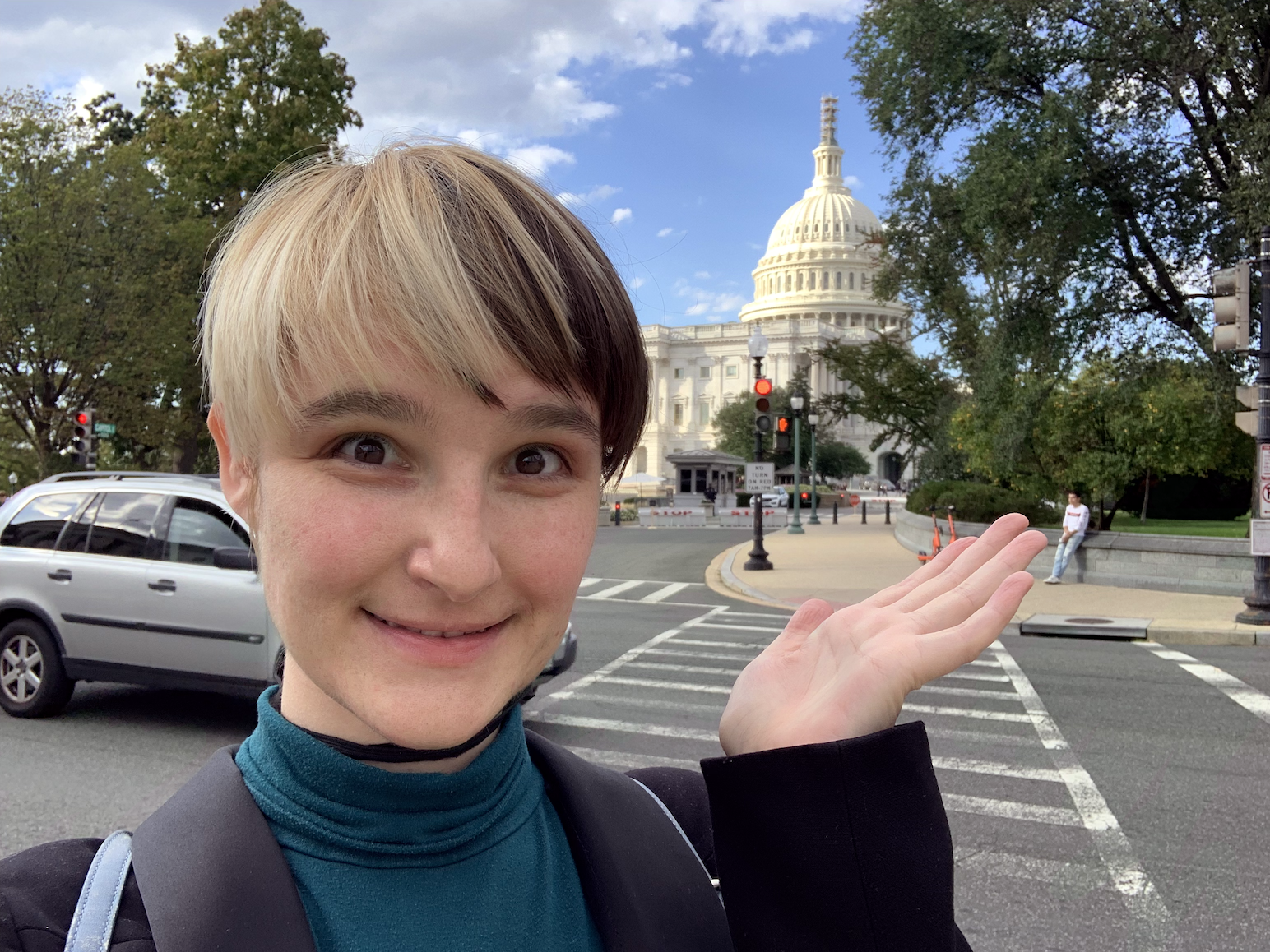
Before we get started, it’s important to acknowledge that in many ways “AI policy” isn’t really A Thing. It may be becoming more of A Thing, but more often AI policy is actually privacy policy, intellectual property policy, trade policy, labor policy, etc with a technology angle. AI policy is very mushy. Since it can be thought of as the Venn diagram intersection of AI and [insert just about any other sort of policy here], that means there are a million ways to “be in it,” and even more ways to “get into it.”
Unlike some other fields or career paths, there isn’t (yet) an agreed upon qualification, like getting a particular certification or degree, that will clarify that you are “ready for AI policy.” This may feel daunting, especially if you are trying to make decisions about what to pursue in school, for instance. On the other hand, this may feel liberating. I studied economics as an undergrad, and some of my AI policy inspirations studied aerospace engineering, international relations, cognitive science and philosophy, history of art and visual studies, and computer science. There are many different courses of study and life experiences that are relevant to AI policy, and my hope is that the field continues to embrace this variety because we need many diverse perspectives to do this work well.
AI policy is wiggly. (Much of the world is!) There are many possible paths, and there likely (and HOPEFULLY) always will be.
That said, it does help to get specific. Remember “AI policy” isn’t really A Thing. It is everything and nothing. It’s almost like saying you want to work on “academia” or “business.” It is important to be able to articulate the particular elements of AI policy that are interesting to you or that you have skills or experience in.
Maybe there’s an issue you’re especially passionate about. Do you have personal experience with something that makes you an experiential expert? Your particular background or expertise may be needed but missing in the dominant conversation. Perhaps you’re transitioning from another career, and you have a deep understanding of an industry and how AI is impacting (or could impact) that field. Maybe you have technical expertise you can bring to the policy space or a policy background that you're now ready to apply to AI.
Whatever the case, try to go at least one level deeper beyond “AI policy” to give some color to the particular problems you want to solve. If you’re not sure yet, that’s okay. But you should aim to develop an answer (or a couple) to this question if you’re serious about getting into this space.
Another thing to acknowledge before we dive in: while there are many possible paths into AI policy, there are also many possible humans. If you want to get a job in this space (which is NOT the only way to be involved, more on that to come!), you’ll need to convince another person to pay actual money to employ you. The AI policy market is competitive. There are lots of people trying to enter this domain, so it’s important to understand what value you bring and what other people actually want.
When I say “what other people want,” I use the word “want” on purpose. There are lots of things that are in need of doing in the world, but the harsh reality is that if you want to do this work professionally, you are subject to the forces that make people willing to pay for things and, thus, to the desires of people who have the money to pay for them. Be prepared to think about what skills and experience you have to offer and how your labor “adds value” compared to alternatives. It also helps to understand that careers in this space are often full of compromises (on things like salary and location but also things like subject matter, impact, and even personal safety).
Also worth noting: Pretty much everywhere is shaped by dominating forces of capitalism. Everyone has funders/clients to satisfy, be they in nonprofit, academia, government, or corporate work. We may be able to create enclaves as we build alternatives, but even those spaces will have to interface with capitalism, at least at their edges.
Sorry. I know this is a kinda spooky start to a piece on entering an exciting new field, but I feel like if you’re ready to navigate the ambiguity of qualifying expertise and to acknowledge the power dynamics at play, then you’re ready to really get started.
Be perceived
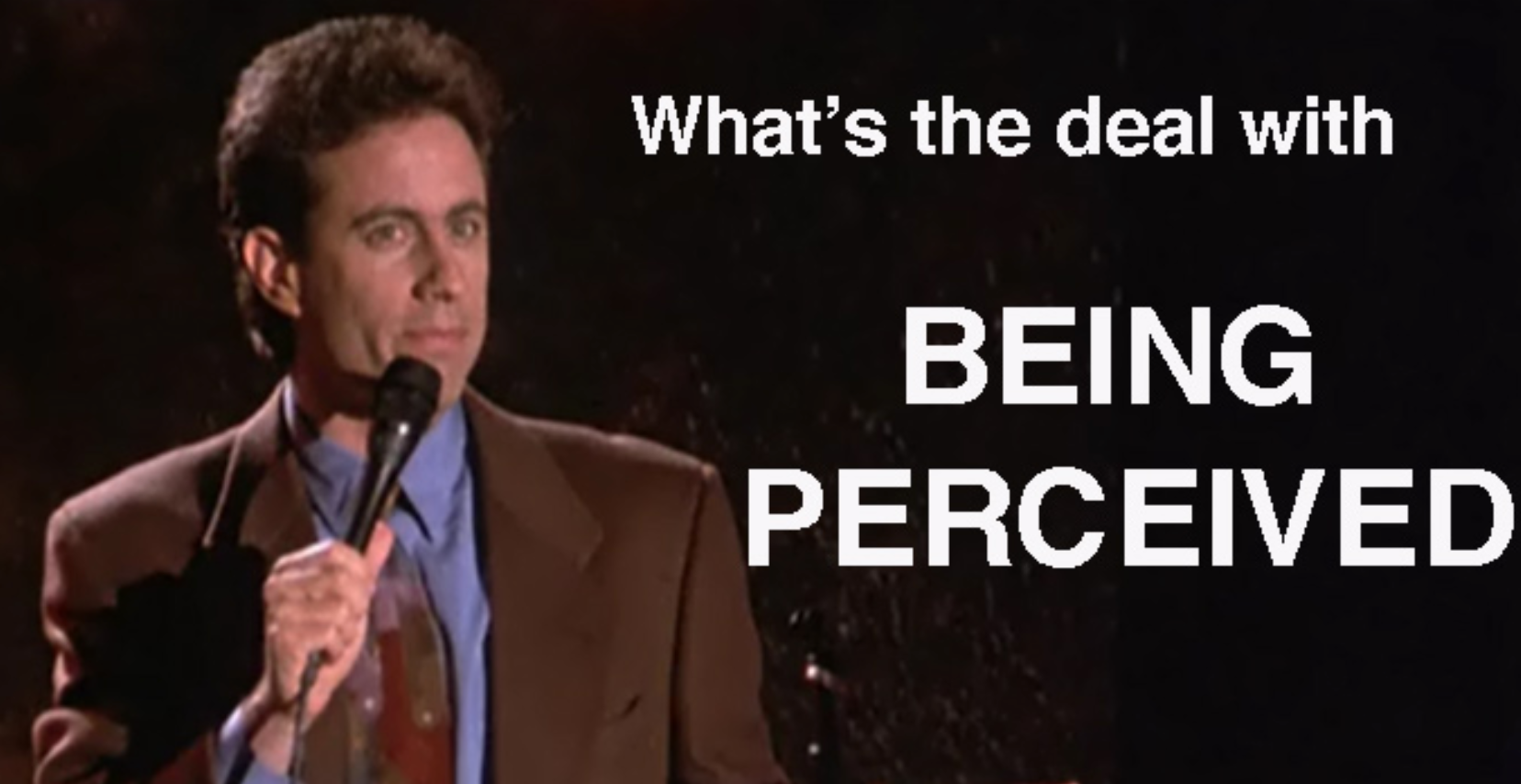
All right, so you (still) want to get into AI policy! The first question you should ask yourself when trying to move into a new domain is “how would anyone know that this is something I am trying to do?”
For the purposes of this section, I’ll mostly be talking in terms of getting a paying job in AI policy, but a lot of this will apply even if you aren’t looking for paid employment.
Even though the AI policy market is competitive, there are still many opportunities. Many of those opportunities may not be accessible, however, through public channels (like on job boards). Many jobs are never listed publicly or are published only as a formality once a candidate has already been selected. The world is not a meritocracy, and often “who you know” does make quite a bit of difference, even if people might pretend otherwise.
Don’t despair! Meritocracy actually sucks in a lot of ways, and you can navigate this reality. You can become legible to your prospective collaborators, employers, and funders. You just need to help them to help you. You need to be perceived.
Whether you are already deep in this field or just getting started, you can make it easier for other people to find out how interested and passionate you are about AI policy. I am not talking about just adding the words “AI Policy Enthusiast” to your LinkedIn headline. Like the classic writing advice instructs: show, don’t tell. There are lots of people that say they want to work on these topics, but what are you doing (or what have you done) that demonstrates to people that you care about AI policy?
Here are some examples of things I have done that helped demonstrate my interest and expertise in this space:
- Created an “AI study group” to audit free online machine learning courses with a group of coworkers
- Followed the hashtags of conferences on social media and engaged in conversations about the presentations (even if I wasn’t physically present!)
- Participated in and helped host meetups and events focused on tech and social impact
- Shared articles about tech policy that I thought were interesting or informative
- Joined a machine learning research paper discussion group
- Publicly asked questions and shared reflections about topics I was learning about
The things you do don’t need to be particularly grand or consequential. They don’t need to be fancy or “official” or especially advanced. Sure, it’s great if you can run a public campaign or draft a new AI policy strategy from scratch, but you can also show your commitment and interest just by starting a three-person reading group with some friends. You can commit to summarizing one article per week on LinkedIn. You can maintain a running list of your favorite lectures on AI on a personal website. There are many ways to demonstrate your interest, growth, and commitment. You just need to give other people the chance to learn about it.
You do not have to wait until you are an “AI policy expert” to do this, either! Rather, it is incredibly useful to “learn out loud” by sharing your questions and journey as you learn. The first item on my list (created an “AI study group”) was something that I did knowing full-well that most, if not all, of the people who joined the study group would know more about the topic than I did. I scheduled the meetings, reserved the room, and handled the logistics, but often I was the one asking the most—and often the most basic—questions during our meetings.
Despite this, not only was I learning, but the other people were learning, too. So they kept showing up. Through my “learning out loud,” my coworkers got answers to questions they might never have asked and got to practice explaining topics that they thought they understood. All the while, whether I knew it or not, I was establishing myself, even if just within my company, as someone who cares deeply about these topics.
I was PERCEIVED even to the extent that people started sending me unsolicited links to articles or invites to events based on my clear interest. If people in your friend group or at work are sending interesting AI policy stuff to you, that’s a good sign that you have effectively indicated that this is a thing you care about.
Be the reply guy you want to see in the world
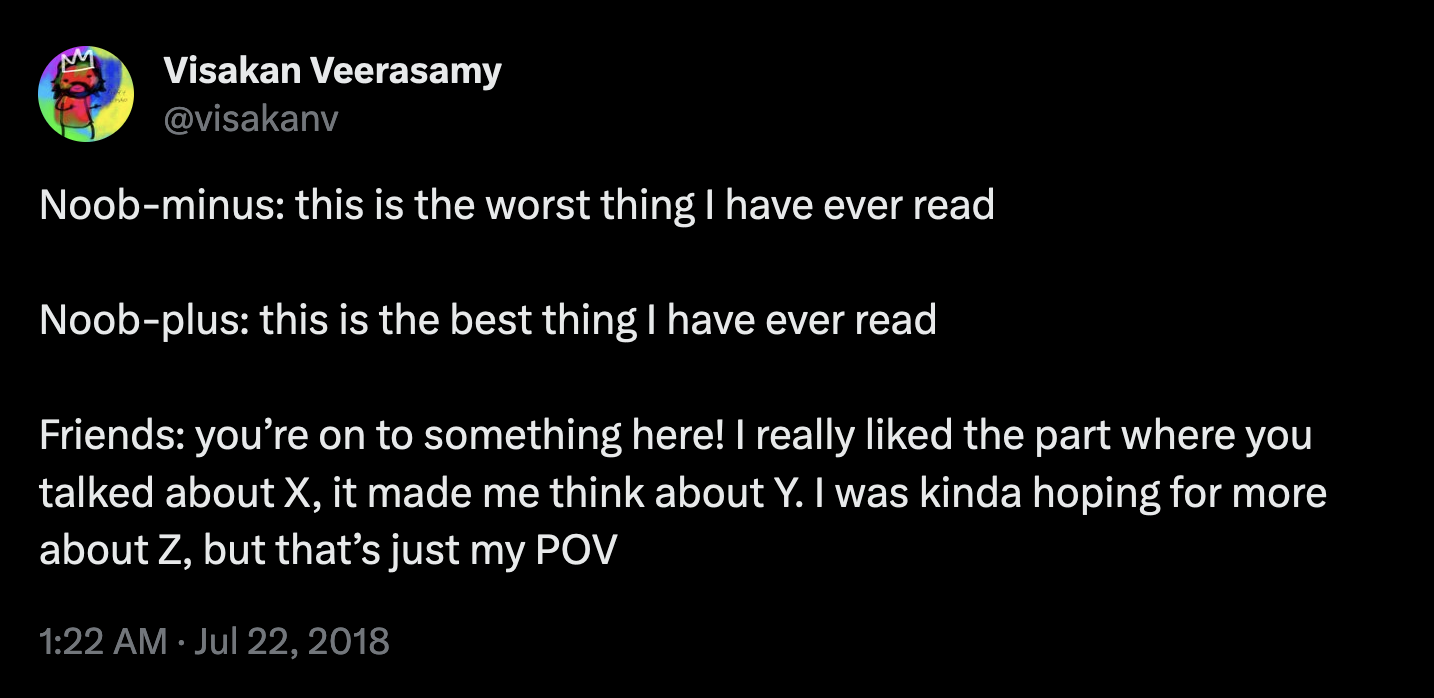
Even though the AI policy job market is competitive, the work of AI policy is collaborative. It requires significant coordination between lots of different people and organizations to do things like run a campaign, change industry practices, or pass a law. That means you need to find a bunch of Actual Human Beings who you can team up with to get things done. In short, you need to build a network.
A lot of people I talk to have super icky feelings associated with the word “networking.” It conjures up scenes of hucksters pushing their business cards on people like skeevy used car salesmen. To many, “networking” is merely a euphemism for self-promotion, instead of what it should actually be about: building networks.
As someone who’s literal job is, at least in part, building networks, I can tell you: self promotion ain’t all that.
This isn’t to say you shouldn’t share accomplishments you’re proud of. That’s great! But it’s even better if, when you share them, you genuinely (and better yet: specifically) acknowledge the other people who helped make those accomplishments possible. AI policy work is people work. Arguably, ALL work is! To accomplish the sorts of goals that AI policy demands, we need to find allies, build partnerships, and generally help each other out. Acknowledging the people who have helped you to achieve your goals demonstrates a key skill essential to AI policy.
When you’re new to a domain, however, you may not have a lot of wins to celebrate yet. And that’s great, too! Because there’s a whole universe of people who care about the same things that you care about, and you can celebrate them. (Spoiler alert: even when you do have a massive list of accomplishments of your own, this still holds!) Change-making is a team sport, so the success of your colleagues, allies, and inspirations is your success, too. Even if you don’t have a lot of experience or accomplishments of your own, amplifying others helps to advance your shared goals.
Remember: We exist in an attention economy, and what we choose to give attention thrives. Give attention to the things you want to see more of and be careful about what you might be amplifying if you choose to dunk.
There are some obvious ways to amplify other people whose work you admire. Re-sharing someone else’s post is one easy way to give extra attention to something. Even better if you add some reflections (what stood out to you?) or additional context (can you build on the original post with more info?). But I think people tend to overlook another way to amplify someone else’s awesomeness: reply in a complimentary or constructive way.
This could mean asking thoughtful questions about the content of someone’s post or finding ways to create connections to other relevant people and communities. If you have a friend who has expressed interest in the topic of a post, for example, try tagging them in the replies with a brief description of what you think they’ll appreciate about it. Network-building often means identifying people in your life who would benefit from particular knowledge or opportunities and helping them to get what they need.
Think through positive experiences you’ve had with interacting with other people online and think of ways you can give more folks those types of experiences. Provide answers to questions people ask, when you have them. Pay it forward by sharing the answers you receive to your own questions in places where others can learn from them (a personal blog can be a great place!), and thank the people who helped you to find what you were looking for. I’ve found it can even be nice to send a personal message to someone who posted something that resonated with me just to tell them that it did. Social media can sometimes feel like calling out into a void, and that’s incredibly lonely. Letting people know that you appreciated and learned from what they shared can go a long way.
Of course, all the great things you might want to elevate may not be posted on social media. Other ways you can amplify people is to cite their work, acknowledge their ideas and actions in your own writing/videos/etc, and nominate people for awards or formal recognition. (Seriously, you might change someone’s whole career with a well-placed nomination!)
Not only does this sort of behavior help you to be perceived, it will help you to cultivate a community (a network!) of people who support and celebrate one another. Participating in these sorts of constructive, supportive conversations is a great way to demonstrate your skill at network-building: drawing relevant connections between people and ideas and helping to facilitate collaboration between different stakeholders. These are essential skills for AI policy.
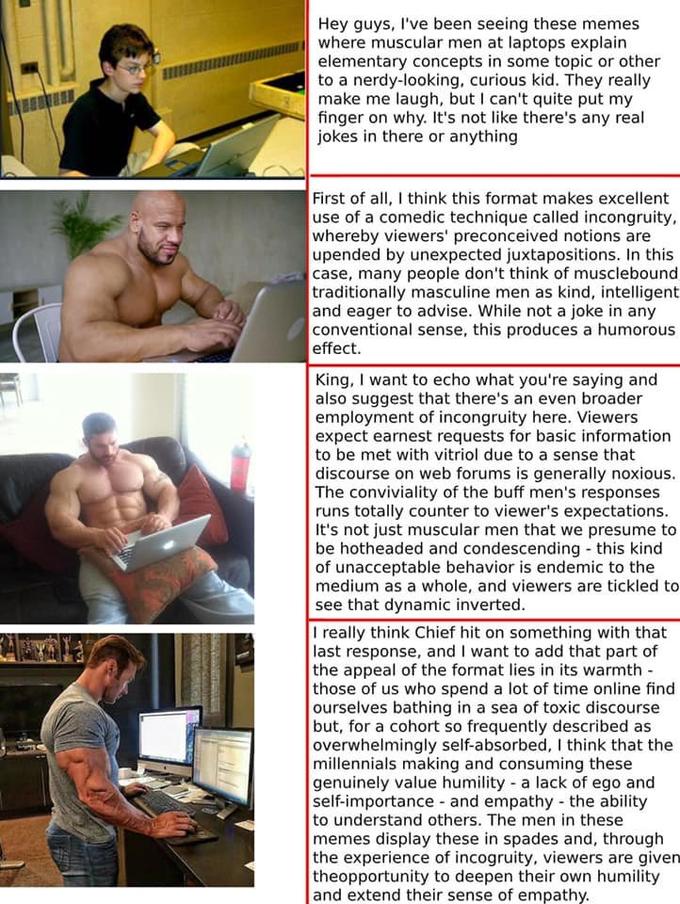
Don't wait to do the work
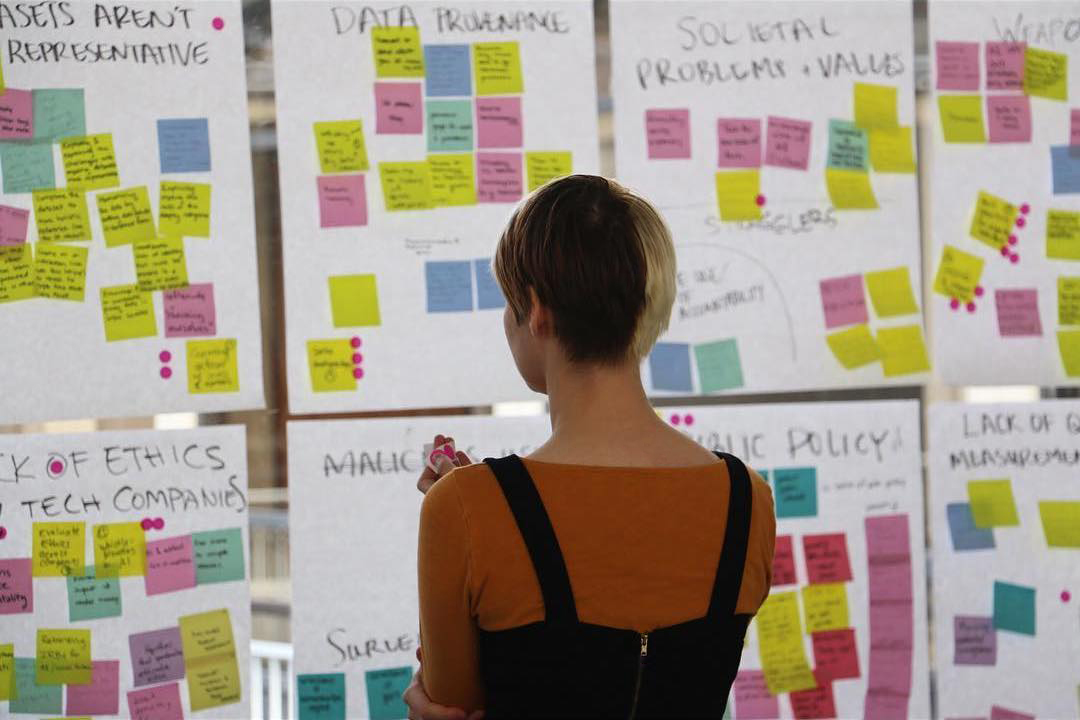
“But B!” You might be saying. “You haven’t really said anything yet about what we need to know about AI or policy, in particular!” And you’re right. Most of what I’ve shared so far is kinda generic advice that could be applied to any number of fields or career paths. I share it because most of the time, when people reach out to me about how to get a certain job or follow a certain path, they haven’t done those things that I see as essential foundations, and that’s a great place to start.
But okay: you’ve figured out your mindset, you’ve been perceived, you are being the reply guy you want to see in the world, and you’re still wondering how to get into AI policy. What can you do?
In my opinion, the best thing you can do is… just get into AI policy! 😜
You don’t need permission. Where you can, begin engaging in the work of AI policy directly. Start close to home with something more familiar to get started. Attend a city council meeting on police use of facial recognition, go to a school board meeting about generative AI in schools, or start a conversation with your colleagues about cybersecurity and AI at work. You can also start sharing your perspectives on a blog or in op-eds or join an advocacy group to lobby policy decision-makers. In the US, the Federal Register often posts requests for information (“RFIs”) and opportunities for public comment. Share your actions with others and encourage them to participate and make their experiences and opinions heard, too.
AI policy decisions are happening every day in organizations big and small, in and outside of government. There are many organizations already at work on issues you care about that could use the extra help, even if you don’t have deep expertise in AI or policymaking. Your perspective as a person impacted by these issues is valuable, too! Jumping right into AI policy doesn’t mean pretending like you know stuff that you don’t or acting like a jerk. If you can manage to show up consistently on an issue; be humble, open-minded and kind; and take good notes, you might be surprised how far that can take you.
I want to say this with extra emphasis:
don’t be afraid to join someone else’s effort.
There’s a tendency in American society to heroize “founders” and “visionaries” and people who start things from scratch. Starting stuff is cool and all, but I actually believe this (over)emphasis on new things results in a bunch of wasted effort. Starting stuff doesn’t just take hard work, it takes infrastructure. Things like branding, documentation, and, often, a lot of legal paperwork. These are critically important things that take time and energy—time and energy that could instead be spent, for example, working on AI policy!
Movements are made by people joining each other. Joining an existing organization, group, community, or initiative often builds greater power and advances goals more effectively than starting off on your own. Even if you are a founder, (like my LinkedIn analytics says a major demographic you are 😜) if you want to convince people to join you, a great way to do that is to show up for them. You’ll learn a ton. Plus joining a team lets you share in the work and the wins. And that’s just fun!
But maybe you don’t feel ready to jump in, just yet. You want to get a little more familiar with the space first. That’s cool, too. It’s great to build a foundation of learning, and there’s a wealth of material to learn from. There are tons of amazing opportunities to read up on these issues and many videos and podcasts available for free online. Try checking out the public lectures or events of a couple different universities (compare how Harvard’s Berkman Klein Center approaches these topics to Stanford’s Institute for Human-Centered AI) or subscribe to one of the many excellent newsletters on tech and policy. (Some highlights: Platform Economy Insights, Tech Policy Press, or even my employer Aspen Digital!)
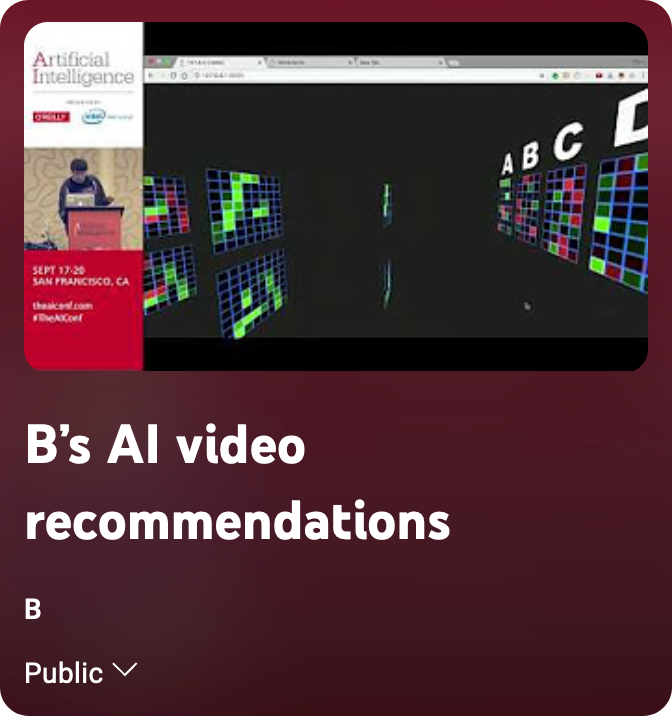
For machine learning and AI essentials, I put together a Youtube playlist of different talks and explainers (and I really can’t recommend enough 3blue1brown’s series on the topic). I really do think all of this stuff is best learned in community, though, with other people who you can ask questions and who can challenge your own understanding and assumptions. (Remember: AI policy is a team sport!) See if you can recruit a couple of friends or colleagues to join you in your learning journey or join them on theirs, and then share your learnings with the world as you go.
There are tons of great resources for learning about AI and policy. I can’t possibly name them all here, so I’ll be a little shameless and plug my team’s work on these Emerging Tech Primers to get you started. I also strongly recommend checking out the Emerging Tech Policy Careers page on AI. For more current events-type reading, check out Sarah Shirazyan’s Trust | Safety | Law AI reading list or Casey Fiesler’s remarkably prompt AI Ethics News.
There are also some fantastic fellowship programs dedicated to helping people like you learn and transition their skills. These programs can teach you to make policy impact and to foster greater collaboration between the diversity of AI policy stakeholders. I’ve gotten to experience a few of these, myself, and they were truly life-changing!
Fellowship programs to check out:
- Aspen Tech Policy Hub teaches a new generation of policy entrepreneurs about the policy process through fellowship and executive education programs and encourages them to develop outside-the-box solutions to society’s problems.
- Horizon Institute for Public Service places fellows at host organizations to help tackle policy challenges related to artificial intelligence, biotechnology, and other emerging technologies.
- Mozilla provides fellows opportunities to develop new thinking on how to address emerging threats and challenges facing a healthy internet.
- TechCongress gives talented technologists the opportunity to gain first-hand experience in federal policymaking and shape the future of tech policy through our fellowships with Members of Congress and Congressional Committees.
And when you’re ready, the All Tech is Human and 80,000 Hours job boards have tons of opportunities for you to apply to, keeping in mind that many jobs are never posted so you’ll want to be on people’s radars.
But I really can’t recommend enough just getting started where you are. Start small. Start with what you know. Look for allies, and don’t underestimate the power of just showing up and taking notes.
And once you get there…
Pay it forward (don’t skip this!)
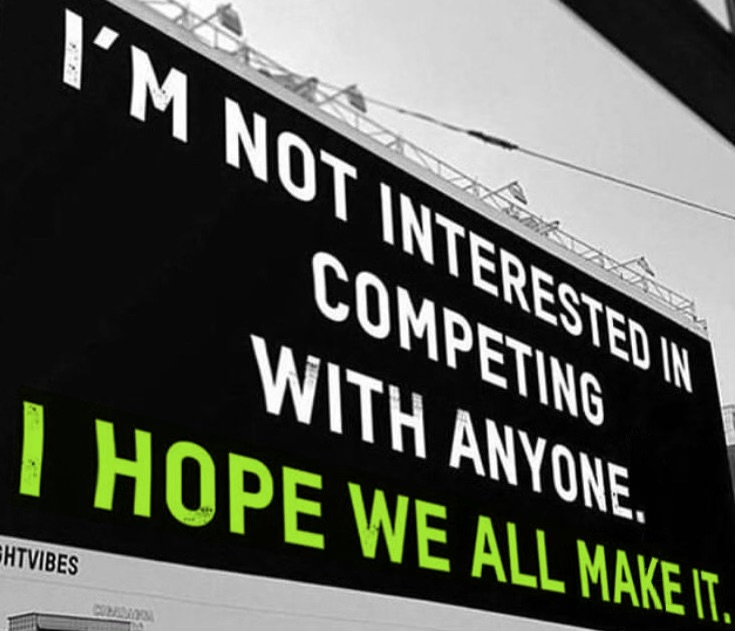
If you’ve made it here, congratulations! 🎉 There’s no “right way” to get into AI policy, so I hope that my reflections and suggestions have been helpful to you. Whatever your own journey, if you share your learnings and experiences along the way, you will probably find yourself getting lots of requests from other people who are interested in getting into this space. You are, of course, welcome to share this blog series with them, but I challenge you to do more.
After all, as I said in part 1:
Unlike some other fields or career paths, there isn’t (yet) an agreed upon qualification, like getting a particular certification or degree, that will clarify that you are “ready for AI policy.”
That’s why in part 2, we recognized that:
The world is not a meritocracy, and often “who you know” does make quite a bit of difference, even if people might pretend otherwise.
The good news is—as we discussed in part 3:
Change-making is a team sport, so the success of your colleagues, allies, and inspirations is your success, too.
Because, ultimately (part 4):
Movements are made by people joining each other.
I believe we all have a responsibility to make it as easy as possible to do good in the world. I also believe that AI is a tremendously consequential technology that everyone should play a role in shaping. As such, I think that all of us who are in the AI policy space (whatever that means!) should do what we can to bring others along with us.
My own path into this space is absolutely thanks to others who brought me along with them. I am overwhelmed with gratitude to all the many, many people who helped me make it to where I am today. It’s still honestly a funkydunky feeling to realize that not only do people aspire to follow in my footsteps, but I actually have the power to help them realize their dreams and forge paths of their own. As I said at the start, “I personally owe a lot of my journey to privilege, luck, and the good graces of others,” and while I may not have much power over the first two things, I can definitely pay it forward on the last one.
And you can, too!
You don’t have to wait until the words “AI policy” are in your job title to start paying it forward, either. There are many ways to pay it forward. Some big and small. Wherever you are in your AI policy journey, I’ll bet you have something to offer.
Sometimes paying it forward looks life-changing like being able to offer a job opportunity to someone with nontraditional experience. Sometimes it’s something small, and maybe even mundane, like helping someone with directions in a new place. When it comes to lifting others up in the world of AI policy, you’ll encounter countless opportunities to be an ally and a champion and to advocate for others, but I think it helps to have some practical examples, so I’ve gathered some of my favorites.
This is a beefy one, so I’ve created jumps to each one:
- Share your experiences where others can learn
- Make time to chat
- Nominate people for awards, invitations, and talks
- Engage with groups who aren’t “strategic”
- Discuss your salary and negotiation info
Share your experiences where others can learn
I know I’ve said this a lot, but it bears repeating! If there’s nothing else you take away from what I have to say, I hope you will consider getting a personal website (even a very basic one) and writing a bit about your journey. Even just having more visibility into the diversity of paths people can take is really powerful for helping bring others along. Personal websites and blogs are also fantastic places to highlight resources you appreciate and channels for directing people toward opportunities they might not otherwise find out about.
Fun fact: in several of my jobs, I’ve been involved in managing parts of my organization's website including the web analytics. Do you know what’s often the MOST high-traffic part of the site? The bio pages! People are constantly looking each other up online, and by having a personal website you get to shape other people’s first impression of you.
Other fun ideas of things to post on your site or blog about:
- Your answers to applications: If you had the opportunity to go to school, participate in a fellowship program, or even get a job relevant to AI policy, you can probably just post your answers to application forms you’ve submitted. (Here are two of mine from TechCongress and Assembly!) Of course, make sure you didn’t agree to NOT do that, but honestly in my experience that’s pretty rare.
- Your advice to others: Take a moment to reflect. What’s something that you’ve done (or not done) that helped you get to where you are? Now share that so that others can stand on your giant shoulders.
- Works-in-progress and ideas you’re exploring: Not everything you share has to be polished and fully-formed. You can also bring others along by “learning out loud” and sharing ideas and problems you’re still chewing on. Consider sharing a list of questions you still have (which could also be a fun way to meet experts who can help you get the answers)!
- Talk openly about things you’ve tried that HAVEN’T worked: Similarly, sometimes you try… and you fail. But it’s great that you tried! While we’re often encouraged to share the most unblemished versions of ourselves, being candid about mistakes can also help people recognize that you don’t have to be perfect to be a person making a difference.
Make time to chat
The #1 ask I get from folks interested in getting into AI policy is to schedule a call. It can honestly be pretty overwhelming, and a lot of people in the space simply declare bankruptcy on the whole thing and stop taking intro calls altogether.
Trust me: I get it.

When you’re a visible person in a desirable field, people often can’t even imagine how many requests you get for a “quick chat” or a “short call” from folks who don’t realize they’re not the only one with that brilliant idea. Realistically, there’s only so much time in a day, week, or year, and you can’t spend ALL of your time on intro calls.
But I don’t think that means you can’t do them at all. Intro calls are a great way to expand your own perspectives, stay grounded in what challenges people entering the field are facing, and, of course, meet new friends and allies. (We’re all on the same team, after all!) The trick is figuring out the cadence and the format that works for you.
Here are some ways I manage things:
- Offer to answer questions in writing: This puts the ball in their court to be clear about why they’re reaching out to me in the first place and means that I can answer things asynchronously on my own time.
- Use a scheduling link: I use Calendly to cut down on the overhead of coordinating timing and also to help enforce my boundaries so that I don’t over-commit myself.
- Redirect people toward publicly available resources: Sometimes, I just don’t have the bandwidth to have a meeting or to craft individualized responses to folks. In that case, it’s handy to have a place to point people to. (see previous section 😜)
Nominate people for awards, invitations, and talks
The last two sections were focused on things you can do that help people you don’t know (yet!), but what about the folks you do?

Something I’ve found supreme delight in is secretly nominating people for awards in this field. As you continue your work in AI policy, you’ll no doubt encounter many brilliant people working hard to make the world a better place. Often this work is not visible, if you’re not paying attention, but you can change that.
Awards may be big national recognition opportunities or something within the context of your neighborhood or workplace. Often, there are public submission forms to nominate people. Although they sometimes take a little work, it’s really satisfying to see the nominations get announced and really, really satisfying when someone you nominated actually wins!
In addition to awards, other ways you can shine a light on others’ greatness is by suggesting their name as a potential invitee to exclusive events. Whether you can go yourself or (especially) if not, this has the double benefit of helping the event organizers by putting good folks on their radar and helping the people you recommend by calling attention to their great work. You might even consider nominating someone to be a speaker or panelist. (Do check in with the person first, though, as I’ve learned the hard way that not everyone likes to be asked to do public speaking! 😅)
Engage with groups who aren’t “strategic”
While you should definitely nominate others to prestigious awards and suggest them for shiny events, I encourage you to also consider participating in events and activities that aren’t necessary noteworthy. It’s fantastic to be asked to keynote an important conference, but it can also be life changing to be a guest speaker for your high school or a local community group.

Similar to making time to chat, above, this can quickly become overwhelming if you’re not careful, but that doesn’t mean it’s not worth doing. I recommend trying for diversity with the types of people and groups you meet with. You’ll learn so much from these conversations, and they’ll give you an opportunity to connect with people on a different level than the high-profile, high-polish engagements. Figuring out a cadence (once per quarter? per year?) that works for you is important for managing your commitments. Bonus upside: speaking with groups of people like this can be one way to bundle a bunch of intro chats into one conversation.
Discuss your salary and negotiation info
Finally, one last way you can help bring others along is to break the taboo around discussing salary and pay.
As noted in part 1 on Mindset, working professionally in AI policy requires selling your labor. It helps, when you’re negotiating how you should be compensated to have information about what others in the space are being offered and paid. Unfortunately, not everyone has personal connections to give them the inside scoop on this information, especially if they’re just starting out in a new field. This can have cumulative effects over the course of people’s careers and tends to disproportionately disadvantage people who already face other barriers in work.

One way you can counteract this is to bear the slight discomfort of a mildly awkward conversation and offer to share your info with others. It helps to lead with vulnerability and make it clear that people don’t need to reciprocate.
Here’s a template from my world with underlines for places to fill in the blanks:
I believe salary transparency helps workers build power, so here’s some info on my end (no pressure to share anything on yours): I was offered $140k per year, I asked for closer to $185k and signed with $155k. I am currently making about $175k.
It may not make sense for you to share your info publicly (although hopefully your organization publishes salary ranges on job descriptions so it’s not a total mystery!) but it definitely can be really powerful to share in 1:1 conversations.
Huge S/O to Hannah Williams and the team at Salary Transparent Street for their leadership in the public conversation about compensation and pay equity. They’re doing essential work!
You made it!
When I started writing this series, I honestly thought everything I had to say would fit in a single post, but here we are. 😅 Thanks for coming on this wild ride. I continue to be grateful to those who have come before me, who take the time to speak my name in rooms of power, to celebrate my work, and give me guidance. Here’s to more learning in the years to come!

